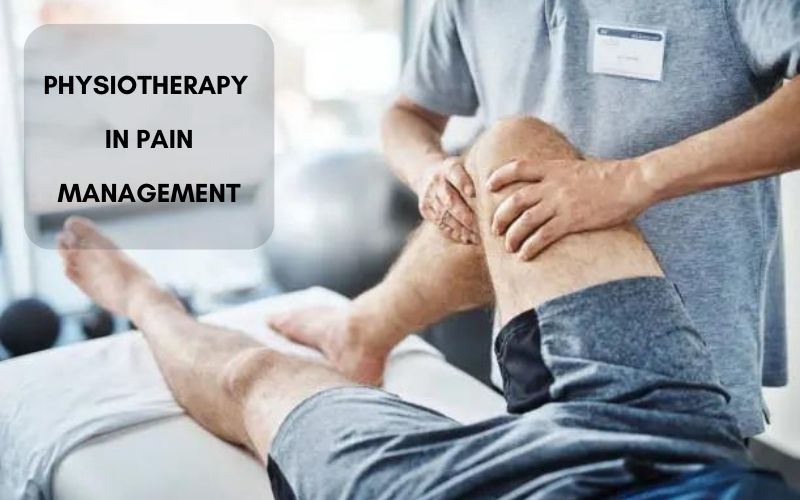
Pain is a normal physiological response to when our body faces internal or external injury, inflammation, nerve irritation, or sometimes with no apparent origin or underlying causes. Usually, pain subsides in due course of time as the body starts the healing process. However, some pain doesn't go away easily, and as a result, chronic pain might develop. It is imperative for patients with chronic or acute pain to undergo pain management, which is a method of assisting people in coping with their pain and its effect on their regular lifestyle.
The goal of pain management is to reduce discomfort as much as possible. When this isn't attainable, pain management will aid in minimizing suffering and educating individuals well on how to manage their pain on an everyday basis.
Common pain conditions
These are some of the common pain conditions experienced by almost every individual at least once in their lifetime -
Role of Physiotherapists
Physiotherapists are vital in the treatment of both acute and chronic pain. Soft tissue massage and stretching to release tension and spasm, joint mobilizations, acupuncture, electrotherapy, corrective exercise, posture awareness, and counselling on how to overcome pain in daily activities may be included in physiotherapy treatment to relieve your pain.
However, the role of physiotherapists in managing chronic as well as acute pain is rather challenging.Therefore, it is crucial for physiotherapy students to receive comprehensive guidance and practical exposure to the different aspects of physiotherapy, so that they are able to take up rewarding jobs in the physiotherapy sector after successful completion of their course and internships.
Scope of Pain management in physiotherapy
Patient Education: Understanding chronic pain and raising the patient's awareness of the diseases are critical elements in chronic pain management. A physiotherapist can assist you in understanding why you are experiencing pain in your joints, muscles, and soft tissues. Understanding pain will assist you in managing and overcoming it. This will guide understanfing -
Exercise Therapy: Often, due to the severity of chronic pain, participation in exercise declines due to fear of worsening symptoms. Patients are frequently counselled not to move through discomfort for fear of exacerbating it. Physiotherapists will be able to advise and prescribe pain-free or pain-reducing exercises to help patients regain mobility. The physiotherapist can design an exercise programme with a graded approach based on the individual's demands, while also attempting to enhance strength and flexibility.
Manual Therapy: Joints might become stiff and irritated as a result of limited movement or activity owing to chronic pain. A physiotherapist can assist by manipulating or mobilising joints, restoring movement.
Soft Tissue Treatments:Massage, trigger point therapy, myofascial release, and stretching may be recommended by a physiotherapist to enhance movement and relieve pain. Soft tissue treatments can help to desensitise the painful location.
Pilates Or Postural Exercises: Physiotherapy-led Pilates Can be an effective therapeutic alternative to regular workout because of its low-intensity technique, which helps to increase strength and control, particularly for chronic neck or back discomfort. Physiotherapists can also provide patients with a postural exercise programme.
Cognitive Behaviour Therapy: Specialist physiotherapists can be trained to address chronic pain utilising cognitive therapy and pain management techniques.
Acupuncture: This ancient Chinese therapy can be a useful alternative treatment option for chronic pain. The National Institute of Health discovered studies indicating that acupuncture is useful in chronic pain related to the neck and back, headaches, and knee osteoarthritis. Acupuncture is a therapy option that some physiotherapists may choose to take further training in.
Heat & Cold Therapy Treatment: This can be beneficial in pain desensitisation. The heat relaxes the muscles, promotes circulation, and increases blood flow to the area, all of which can alleviate pain. Cold therapy lowers blood flow to the area, numbing it and delaying pain signals from your nerves to your brain.
Patients suffering from pain can learn to regulate their discomfort and resume everyday activities by combining therapy alternatives. The purpose of physiotherapy is to help people regain control of their lives and minimise the fear and avoidance associated with pain.
How To Opt For Physiotherapy?
Today, there are various institutes in the country that offer physiotherapy training to those who want to serve and care for others. PEWS College of Physiotherapy & Medical Sciences is one of the most well-known and renowned educational institutions in northeast India catering to physiotherapy students. Having moulded several physiotherapists in the past who now serve at multiple locations in northeast India, PEWS College of Physiotherapy & Medical Sciences continues to groom its students as responsible and well-trained professionals in the field.
Visit https://cpmsc.com/ for more information on the courses and admissions procedure. It is affiliated with the Srimanta Sankaradeva University of Health Disciplines, Govt. of Assam and offers the best education in physiotherapy and other medical sciences.